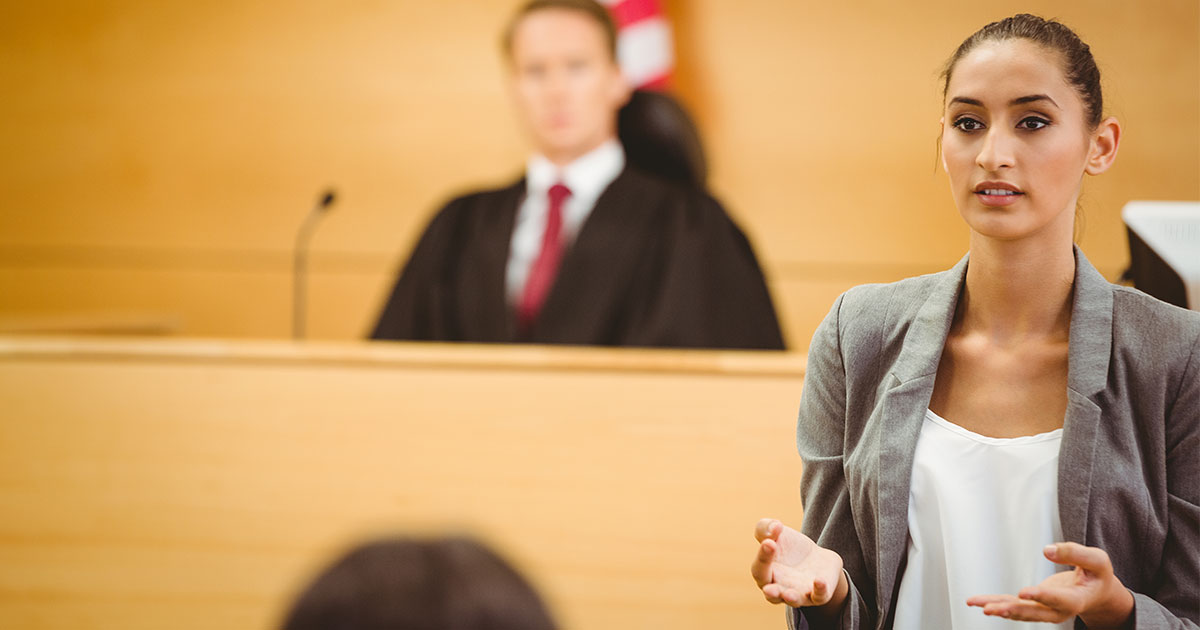
The State Bar of Wisconsin PINNACLE’s annual Trending Topics in Business Litigation seminar took place on Dec. 1, 2022. The seminar was conducted both in person and by webcast, and webcast replays are scheduled for the coming weeks. The day-long seminar featured skilled litigators presenting on relevant topics, such as shareholder disputes, corporate designee depositions, noncompete agreements, fraudulent transfers, and damages in business litigation cases, followed by panel discussions in which the panelists shared their insights, experiences, and practice tips regarding the covered topics. Separate panel discussions covered civility in the courtroom; hot topics in business litigation; and hot topics in arbitrations, mediations, and settlement agreements.
Shareholder Disputes
Matthew Fernholz and David Peterson presented on shareholder disputes. They began by discussing the differences between direct and derivative claims and the shareholder-standing issues raised by this distinction. They next described special litigation committees (SLCs), which are authorized under Wis. Stat. section 180.0744, and offered their views on how to create and effectively use an SLC, how to enforce an SLC report, and the standards courts apply when reviewing SLC reports.
Fernholz and Peterson also discussed equal distributions among shareholders, including bonuses and constructive dividends; breach-of-fiduciary-duty claims arising therefrom and application of the business-judgment rule; self-dealing and mismanagement claims; and requests for judicial dissolution of a company, including the potential ramifications of requesting dissolution.
Fernholz and Peterson concluded by describing the facts and issues of a recent shareholder dispute in which they represent opposing parties. Following the presentation, the panelists shared their own experiences on these subjects. They offered practice tips, discussed strategies for creating an SLC, and explored the powerful and potentially dispositive effect an SLC report can have on a case.
Corporate Designee Depositions
Aaron Aizenberg’s presentation was titled “Weaponizing the 30(b)(6) Deposition.” He gave an overview of
the rules under Fed. R. Civ. P. 30(b)(6) and its state analog, Wis. Stat. section 804.05(2)(e). Aizenberg highlighted the meet-and-confer requirement that exists under federal law but not under Wisconsin law and the importance of such a conference.
Aizenberg also discussed common areas of abuse in corporate-designee depositions and tips on measures to curb abuses. These include overly broad deposition topics and their effect on witness preparation; corporate-designee deposition notices provided near the close of discovery and the requirement for a reasonable period of time to prepare the designee witnesses; questions beyond the scope of the designated topics and practice tips on how to respond when that occurs; improper inquiries into expert testimony, including damages; the seven-hour time limit and its application when there is more than one corporate designee witness; manufacturing inconsistencies in the testimony of key witnesses who have already been deposed in the litigation; holding the corporate-designee witness to a high standard given the volume and breadth of topics requested and finding alternative ways to provide the information requested by means of interrogatory responses and responses to document requests; disguised attempts to re-depose a key witness through a corporate-designee deposition; and attempts to use a corporate-designee deposition to overly burden the responding party.
Noncompete Agreements
Robert Corris presented a segment titled “Mining for Diamonds: Examining Diamond Assets LLC v. Godina and Karsten v. Terra Engineering & Construction Corporation.” He discussed the Wisconsin Court of Appeals’ recent decision in Diamond Assets LLC v. Godina,1 in which the court clarified when a restrictive covenant might be the proper subject of a motion to dismiss. He explored Diamond Assets’reinspection of the Wisconsin Supreme Court’s decision in Rollins Burdick Hunter of Wisconsin Inc. v. Hamilton2 and compared its treatment of issues to the court of appeals’ analysis in another recent case, Karsten v. Terra Engineering & Construction Corp.3 Corris discussed the Karsten court’s questioning of Selmer Co. v. Rinn,4 in which the court of appeals declined to apply Wisconsin’s restrictive covenant statute, Wis. Stat. section 103.465, to a restrictive covenant in a stock option agreement. After this presentation, the panel discussed whether Selmer might be reexamined in future cases.
Civility in the Courtroom
Joe Russell led a panel discussion with the Hon. Ellen Brostrom, a Milwaukee County Circuit Court judge, and Tim Pierce, State Bar of Wisconsin ethics counsel, on civility in the courtroom. They discussed the civility expectations of the U.S. Supreme Court and the Wisconsin Supreme Court. They also explored how to define civility, the attorney’s oath, standards of courtesy and decorum, and various rules of ethics and professional conduct.
Fraudulent Transfers
Susan Lovern presented a detailed overview of fraudulent transfer claims and defenses under Wis. Stat. chapter 242, the Wisconsin Uniform Transfer Act. She discussed the Act’s key definitions, the categories of claims that may be brought by different classes of creditors, actual and constructive intent in proving claims under the Act, statute-of-limitation issues, remedies available to a creditor, and transfers that are not voidable under Wis. Stat. section 242.08.
Hot Topics in Business Litigation
The next group of panelists offered practice tips on litigating business-defamation and related claims. They discussed defenses unique to those claims and difficulties and practical considerations related to proving damages. The panel explored civil and criminal contempt-of-court motions, offering a detailed discussion of Sasson v. Braun,5 in which the court of appeals affirmed a circuit court’s order dismissing a lawsuit with prejudice as a sanction for a plaintiff’s bad faith and egregious misconduct in litigating a claim. The panelists also discussed zealous advocacy and motions for sanctions for frivolous claims and offered commentary on the 21-day safe harbor under Wis. Stat. section 802.05(3)(a)1.
Damages
Matt O’Neill gave a presentation titled, “Damages – Offense and Defense Issues and Strategies.” He discussed damages for contract, tort, and various statutory claims, including those that provide for enhanced damages. O’Neill also explored strategies for analyzing damages pre-litigation; plaintiffs’ side strategies for pleading, organizing, working up, and disclosing damages; and strategies for pleading and attacking damages defensively.
Hot Topics in Arbitrations, Mediations, and Settlement Agreements
In the final session, Mike Cohen presented on substantive and procedural arbitrability; the finality of arbitration, including a review of the recent “sleeping arbitrator” case, Loren Imhoff Homebuilder Inc. v. Taylor6; and the thorny issues that can arise when dealing with a biased arbitrator. The panel also discussed the court of appeals’ decision in Paul R. Ponfil Trust v. Charmoli Holdings LLC,7 which held that a mediation term sheet was unenforceable because its release and indemnity provisions were too indefinite and uncertain. The panel emphasized the importance of including all material terms and conditions in mediation term sheets and settlement agreements and offered various practice pointers to ensure such agreements are enforceable. The panel concluded with a discussion of releases pursuant to Pierringer v. Hoger8 and their limited value for intentional tort and other non-negligence claims.
Conclusion
This was an excellent program with highly experienced speakers offering a wealth of knowledge in this area of practice. Wisconsin lawyers who are involved in business litigation matters would benefit from this seminar, regardless of their level of experience.
Also of Interest
State Bar of Wisconsin PINNACLE Seminar:
Trending Topics in Business Litigation Viewing Opportunities and Participants

Did you miss the live program? It’s not too late to watch the seminar as a webcast.
The State Bar will replay the presentation by webcast on Jan. 3, Jan. 9, Jan. 18, Jan. 24, and Jan. 31, 2023.
To register, visit State Bar Marketplace: https://marketplace.wisbar.org/store/products/cle-seminars/saturday,-december-10,-2022/c-25/c-78/p-28988#28988.
Participants: Michael J. Cohen of Meissner Tierney Fisher & Nichols S.C. chaired the program and led two of the panel discussions. The following individuals were presenters or panelists:
- Aaron H. Aizenberg, Kravit, Hovel & Krawczyk S.C.
- Hon. Ellen Brostrom, Milwaukee County Circuit Court.
- Robert B. Corris, Robert B. Corris S.C.
- Matthew M. Fernholz, Cramer, Multhauf & Hammes LLP.
- David J. Turek, Gass Turek LLC.
- Dean P. Laing, O’Neil Cannon Hollman DeJong & Laing S.C.
- Susan E. Lovern, von Briesen & Roper s.c.
- Matthew W. O’Neill, Fox, O’Neill & Shannon S.C.
- David Peterson, Reinhart Boerner Van Deuren s.c.
- Timothy Pierce, State Bar of Wisconsin.
- Joseph M. Russell, von Briesen & Roper s.c.
Meet Our Contributors
What is the most challenging aspect as a mediator or arbitrator in business litigation?
 The most challenging aspect of mediating business litigation cases is getting parties to understand their claims or defenses are not perfect, there is risk in their respective positions and the mediation is their opportunity to minimize that risk and obtain resolution on terms that are within their control. It often requires a delicate touch so that the parties do not form the opinion that I am biased against them. I usually explain in a group session at the outset of the mediation that I am an equal opportunist in that regard and that they should not think that I am picking on them. I also make clear that their counsel is ethically bound to be zealous advocates, but that as an independent third-party neutral, I am not burdened by that obligation and can help them make a more informed decision on whether to continue to litigate or settle.
The most challenging aspect of mediating business litigation cases is getting parties to understand their claims or defenses are not perfect, there is risk in their respective positions and the mediation is their opportunity to minimize that risk and obtain resolution on terms that are within their control. It often requires a delicate touch so that the parties do not form the opinion that I am biased against them. I usually explain in a group session at the outset of the mediation that I am an equal opportunist in that regard and that they should not think that I am picking on them. I also make clear that their counsel is ethically bound to be zealous advocates, but that as an independent third-party neutral, I am not burdened by that obligation and can help them make a more informed decision on whether to continue to litigate or settle.
Michael J. Cohen, Meissner Tierney Fisher & Nichols S.C., Milwaukee
Become a contributor! Are you working on an interesting case? Have a practice tip to share? There are several ways to contribute to Wisconsin Lawyer. To discuss a topic idea, contact Managing Editor Karlé Lester at klester@wisbar.org. Check out our writing and submission guidelines.
Endnotes
1 Diamond Assets LLC v. Godina, 2022 WI App 47, 404 Wis. 2d 404, 979 N.W.2d 586.
2 Rollins Burdick Hunter of Wis. Inc. v. Hamilton, 101 Wis. 2d 460, 304 N.W.2d 752 (1981).
3 Karsten v. Terra Eng’g & Constr. Corp., No. 2016AP2025, 2017 WL 3923804 (Wis. Ct. App. Sept. 7, 2017) (unpublished).
4 Selmer Co. v. Rinn, 2010 WI App 106, 328 Wis. 2d 263, 789 N.W.2d 621.
5 Sasson v. Braun, No. 2014AP1707, 2015 WL 4731641 (Wis. Ct. App. June 25, 2015) (unpublished).
6 LorenImhoff Homebuilder Inc. v. Taylor, 2022 WI App 14, 401 Wis. 2d 510, 973 N.W.2d 836.
7 Paul R. Ponfil Tr. v. Charmoli Holdings LLC, 2019 WI App 56, 389 Wis. 2d 88, 935 N.W.2d 308.
8 Pierringer v. Hoger, 21 Wis. 2d 182, 124 N.W.2d 106 (1983).
» Cite this article: 96 Wis. Law. 35-37 (January 2023).
